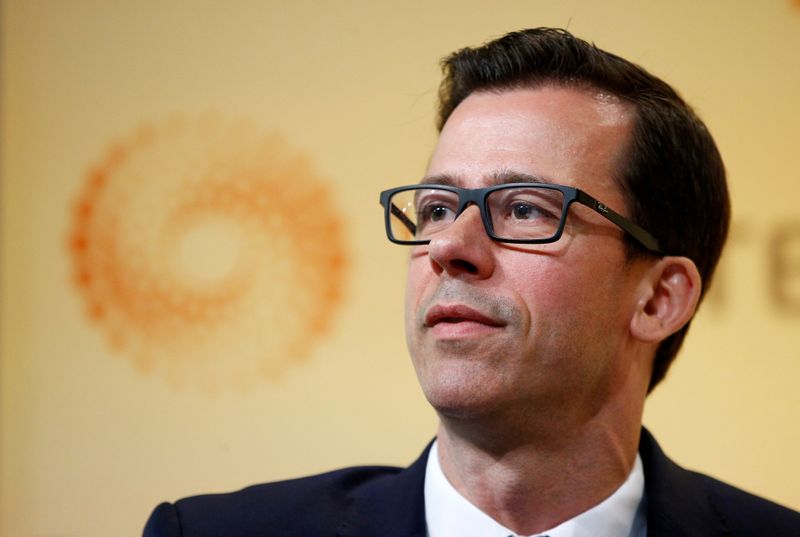By William Schomberg and Kate Holton
LONDON (Reuters) -Bank of England interest-rate setter Gertjan Vlieghe said the central bank should not scale back its stimulus possibly until well into 2022 because a recent rise in inflation is likely to be temporary and COVID-19 remains a threat for the economy.
Vlieghe also said he would want to see the impact on the economy from the government’s withdrawal of its huge pandemic support programme over the coming months, including its wage subsidy furlough scheme.
“For all these reasons, I think it will remain appropriate to keep the current monetary stimulus in place for several quarters at least, and probably longer,” Vlieghe said in a speech to the London School of Economics on Monday.
“And when tightening does become appropriate, I suspect not much of it will be needed, given the low level of the neutral rate.”
Two BoE officials – Deputy Governor Dave Ramsden and Michael Saunders – said this month the time for tighter policy might be nearing, raising the prospect of the BoE curtailing its bond-buying programme sooner than planned.
Britain’s economy suffered its worst contraction since the early 18th century in 2020, but has recovered most of its 10% hit thanks to one of the world’s fastest COVID-19 vaccination programmes. Inflation has jumped past the BoE’s 2% target.
But another Monetary Policy Committee member, Jonathan Haskel, said last week that scaling back support for the economy was not the right option for the foreseeable future and Catherine Mann – who joins the BoE as a policymaker on Sept. 1 – warned against curbing stimulus too soon.
SPIKE IN PRICES
Comments by Deputy Governor Ben Broadbent on Thursday further diminished the prospect of an imminent move by the BoE when he said a current spike in prices was unlikely to create longer-term inflation pressures.
The BoE begins its latest monetary policy meetings later this week, before announcing its decisions alongside fresh forecasts for the economy on Aug. 5.
The August meeting will be Vlieghe’s last before he leaves the central bank.
Financial markets currently price in a first rate rise by the BoE – to 0.25% from 0.1% – by August next year.
The value of the pound edged down and British government bond prices rose after Vlieghe’s speech was published on Monday.
Looking further ahead, he said he would be comfortable with cutting Bank Rate to -0.5% or even -0.75% the next time monetary stimulus was required, given the limits on central banks’ firepower with borrowing costs likely to remain low.
“I also believe that the economic impact of further rate cuts is likely to decline somewhat at lower levels of interest rates, though the impact would still be positive,” he said.
But more deeply negative interest rates would be possible in “the distant future” if digital currencies issued by central banks become widespread, Vlieghe said.
(Reporting by William Schomberg and Kate Holton; Editing by Michael Holden and Alex Richardson)























